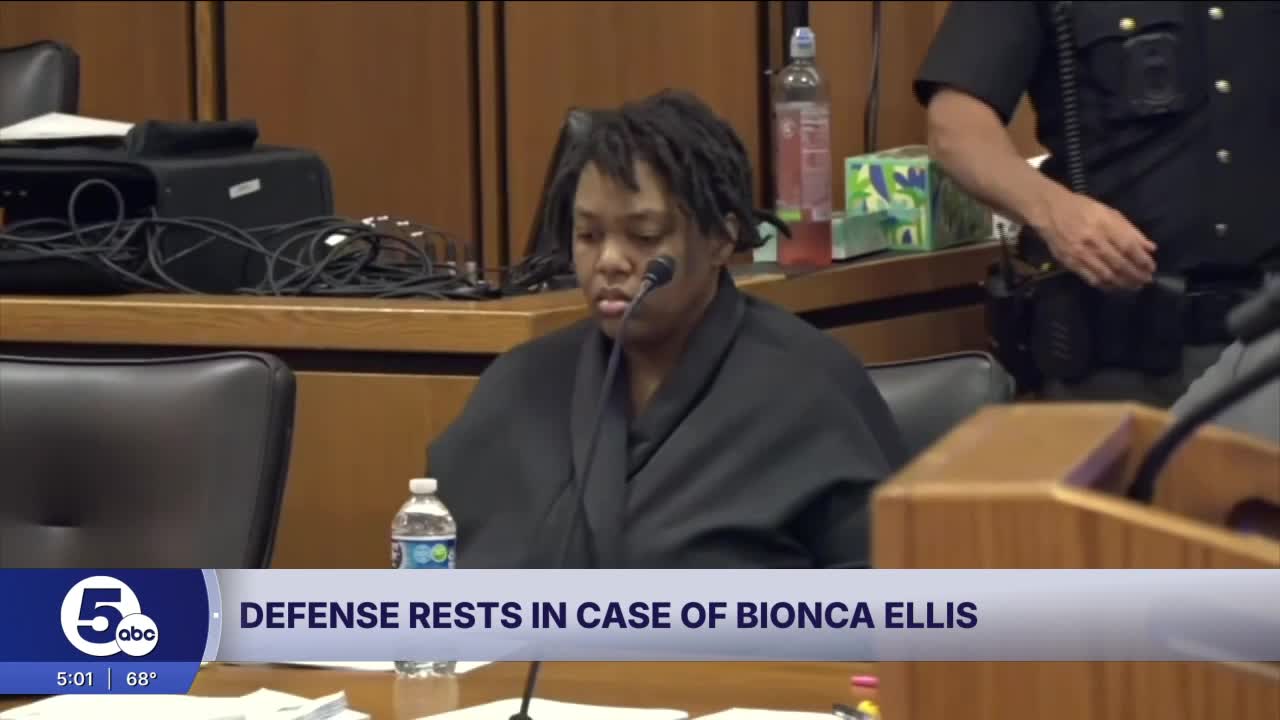CLEVELAND, Ohio — A pair of psychiatrists offered differing expert opinions in a murder trial where mental health has been a central question.
The final two witnesses gave testimony on Friday in the trial of Bionca Ellis.
RELATED: Mother of toddler killed in 2024 stabbing testifies in Bionca Ellis trial
Ellis is charged with 10 counts, including murder and attempted murder, for a June 2024 attack. She’s accused of fatally stabbing 3-year-old Julian Wood and injuring his mother outside a North Olmsted Giant Eagle.
The defense has entered a not guilty plea by reason of insanity. Defense attorneys rested their case Friday after their final witness talked about her interviews, research and conclusion about Ellis’ mental state during the stabbing.
Dr. Sara West, a forensic psychiatrist, explained that she talked with Ellis on more than one occasion. In July 2024, West interviewed the defendant and helped determine she was not competent to stand trial.
Following inpatient psychiatric treatment and ordered medication, Ellis again talked with West to be evaluated for her insanity plea.
She explained Ellis had a long history of mental illness and had received periodic treatment and medication for a schizophrenia diagnosis. West told the jury Ellis was having auditory hallucinations at the time of the killing, including voices telling her that someone needed to die.
“Ms. Ellis suffers from severe mental disease, namely schizophrenia, and was experiencing symptoms at that time related to this illness that caused her to not know what she was doing was wrong,” she said.
“It appears that Ms. Ellis on that day, related to her severe mental illness of schizophrenia, was experiencing a rising crescendo of paranoid fear and irrationality, coupled with significant disorganization, that culminated in an inability to consider the wrongfulness of her actions. Thus, she did not know they were wrong.”
The defense rested its case following West’s testimony. The state called a rebuttal witness in response.
Its expert witness, forensic psychiatrist Dr. Stephen Noffsinger, also interviewed Ellis following the attack. He testified that he talked with the defendant for three hours in June 2024 and also reviewed Ellis’ medical, criminal and social history.
He said it was possible Ellis had not had auditory hallucinations and the acts were committed out of rage, rather than mental illness.
“Even if you accept that she experienced these symptoms – again, they’re not corroborated – but even if you accept them and she experienced them, they would not have caused her to believe that committing the murders and the other offenses was the right thing to do,” Noffsinger said.
“Not every action that someone with schizophrenia commits is a product of their schizophrenia. People with mental illness can react for all kinds of motives that everyone can react with… such as anger and problems with temper.”
The court recessed for the weekend during Noffsinger’s testimony. The defense will have an opportunity to cross-examine him when proceedings continue on Tuesday. Following testimony, both sides will present closing arguments before the jury deliberates its verdict.





